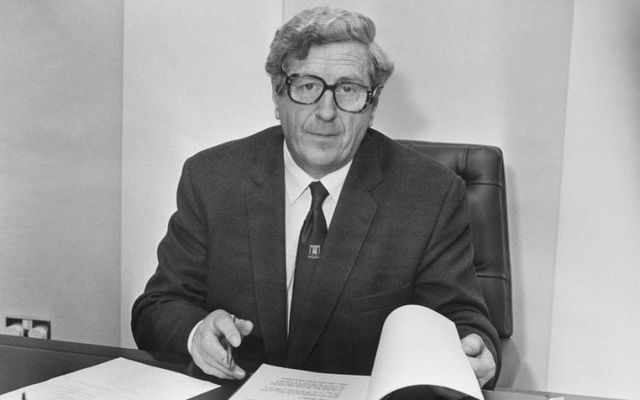Former Irish Taoiseach Garret Fitzgerald was born on February 9, 1926, in Dublin. We take a look back on his life and career.
Garret Fitzgerald, one of Ireland's most respected statesmen, served as the Taoiseach (Prime Minister) of Ireland from 1981 to 1987. He was a key figure in the political landscape of Ireland for over three decades and is remembered for his unwavering commitment to peace and reconciliation, as well as his efforts to modernize and reform the Irish economy.
Born in Dublin in 1926, Fitzgerald grew up in a politically active family. His father was a prominent politician and his uncle, Éamon de Valera, was one of the founding fathers of the Irish state.
Growing up in a politically active family, Fitzgerald was exposed to the world of politics from a young age and was deeply influenced by the ideals of democracy, social justice, and human rights.
Fitzgerald was educated at the prestigious Gonzaga College in Dublin and later went on to study economics at University College Dublin (UCD). During his time there, he became involved in student politics and was an active member of the university's branch of the Irish Labour Party.
After completing his education, Fitzgerald took up a position as a lecturer in economics at UCD. During this time, he also wrote several books on economic policy and was widely regarded as an expert in the field. Despite his success as an academic, Fitzgerald remained deeply committed to the ideals of social justice and human rights and became increasingly involved in political activism.
In the early 1960s, Fitzgerald was elected to the Dáil Éireann, the lower house of the Irish parliament, as a member of the Fine Gael party. He quickly rose through the ranks, serving as Minister for Foreign Affairs, Minister for Defence, and Minister for Education before becoming Taoiseach in 1981.
While in office, Fitzgerald made significant contributions to the peace process in Northern Ireland, working tirelessly to bring an end to the conflict. He was a key player in the negotiations that led to the Anglo-Irish Agreement in 1985, which established a framework for cooperation between the British and Irish governments on issues related to Northern Ireland.
Read more
In addition to his efforts to promote peace, Fitzgerald is also remembered for his efforts to modernize and reform the Irish economy. He introduced a number of measures aimed at improving the competitiveness of Irish businesses and attracting foreign investment, which helped to lay the foundations for the economic growth that Ireland would experience in the years to come.
Despite the many challenges he faced, Fitzgerald remained a steadfast champion of peace, reconciliation, and economic reform throughout his career. His legacy continues to inspire successive generations of Irish politicians, and his memory is held in high esteem by the Irish people.
Garret Fitzgerald passed away on May 19, 2011.




Comments